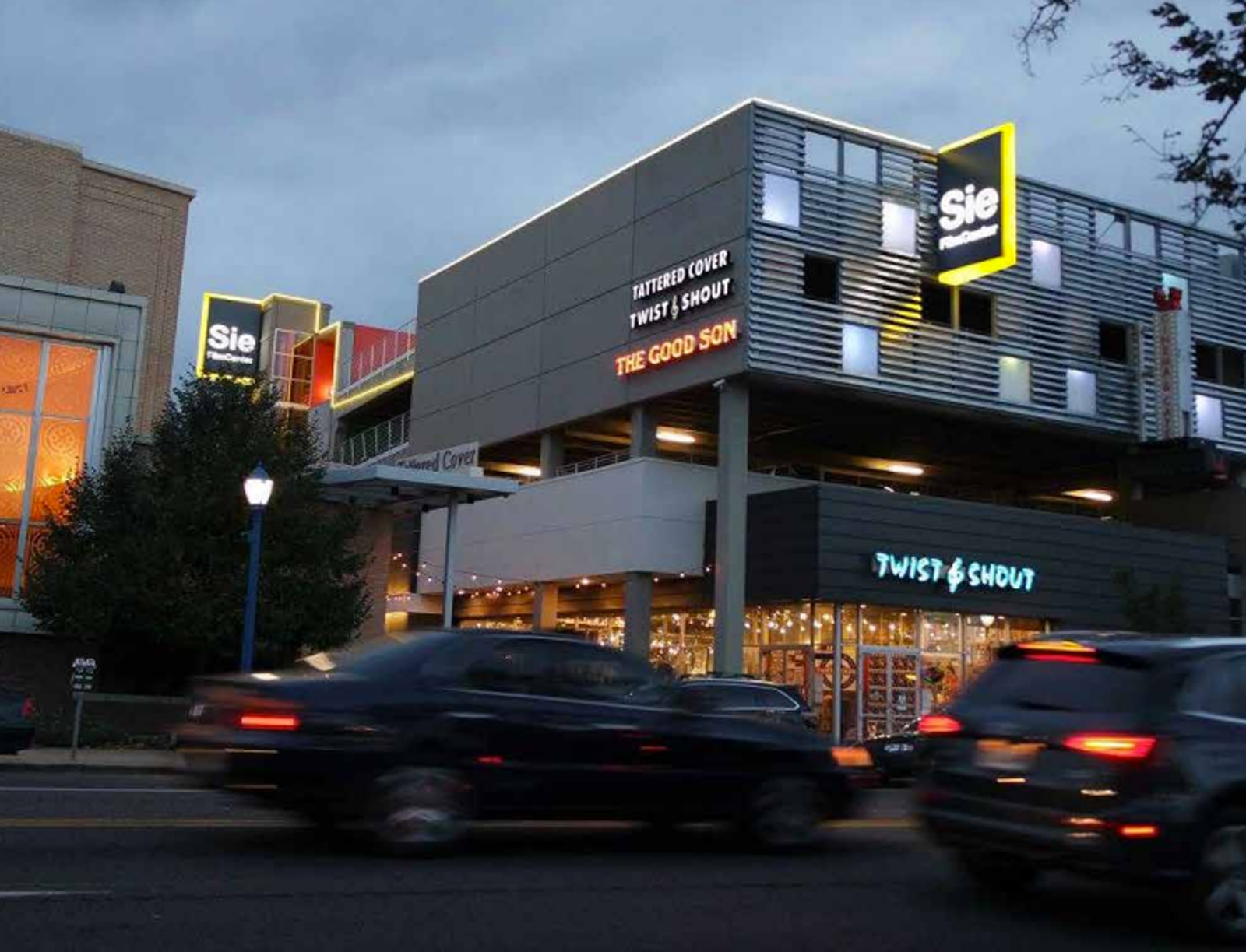The Local newsletter is your free, daily guide to life in Colorado. For locals, by locals.
The Denver Film Society announced Wednesday that it filed an antitrust lawsuit against Landmark Theatres along with three other independent movie exhibitors. The lawsuit alleges that Landmark restricted them and other independent organizations from screening certain films by using market dominance to coerce distributors into giving them exclusive rights. It seeks an unspecified amount in monetary damages and an injunction to stop Landmark’s practices.
The specialty film chain’s alleged coercion has resulted in “no local competition for those films despite consumer demand,” according to a press release by the Denver Film Society. DFS filed the suit with the Avalon Theatre and West End Cinema (both based in Washington, D.C.), and Michigan’s Cinema Detroit.

Landmark Theatres—a Los Angeles-based subsidiary of well-known venture capitalist Mark Cuban’s 2929 Entertainment—operates 51 theaters around the country. (Locally, Denverites might recognize the names of Mayan, Esquire, and Chez Artiste.) In total, Landmark theaters house 242 screens in 22 major metropolitan areas, the release says. The company’s practice of getting exclusive rights to certain films is known as “clearance,” says Denver Film Society’s Executive Director, Andrew Rodgers, meaning that while a Landmark theater screens a film, no other organization can show it while it’s running at the Landmark theater.
“We view it as really unfair. It really hurts audiences and filmmakers, in addition to us,” Rodgers says. “A lot of people tell us they’d prefer to come to our theater over Landmark, and great, so be it, but consumers don’t have a choice.” One example, he says, is 2017 Oscar winner for Best Picture, Moonlight. The movie was screened at Landmark locations once each afternoon, making it so no other theaters in the area could touch it. “We can pick it up after Landmark is done with it, but the reality is that films are like produce at a grocery store,” he says. “They have a bit of a shelf life. If you’re showing a film weeks after it premiered, most audiences have moved on at that point.”
The Denver Film Society opened the Sie FilmCenter in 2010, taking over the space once used by another independent film theater, Neighborhood Flix. Since 2010, Rodgers says, they have not once been able to show a film that was screening at a local Landmark theater—and Neighborhood Flix ran into the same problem before them. When asked how many movies they’ve been unable to screen, Rodgers says the numbers are countless. If he were to try and figure it out, he says, he’d just have to look at a list of films that Landmark has shown since 2010. Anything he’d be interested in screening—like Moonlight—would have been a no-go if Landmark had its hands on it.
“[What we] believe is happening is that Landmark is using their power in a really nefarious way, saying to distributors, ‘Yeah, sure, you can show at the Denver Theater, but [if you do], we’re not showing it at any of ours,” he says. Such a threat is highly illegal, according to Rodgers.
Landmark actually filed a similar lawsuit last year against Regal Entertainment Group for engaging in the same “clearance” conduct with commercial films. Following last year’s suit, several Hollywood commercial film distributors came out against the “clearance” practice, and said they’d no longer engage in it. But, according to Rodgers, “that was really on the big film level, like Star Wars or Wonder Woman.” The specialty market, including films like Moonlight, is considered a different game. Until Landmark responds to the suit, next steps are unclear. But Rodgers says he hopes to bring change to the industry. “It’s our hope that we end up in court and are able to tell our story.”
A spokesperson for Landmark Theatres offered 5280 no comment regarding this lawsuit.








